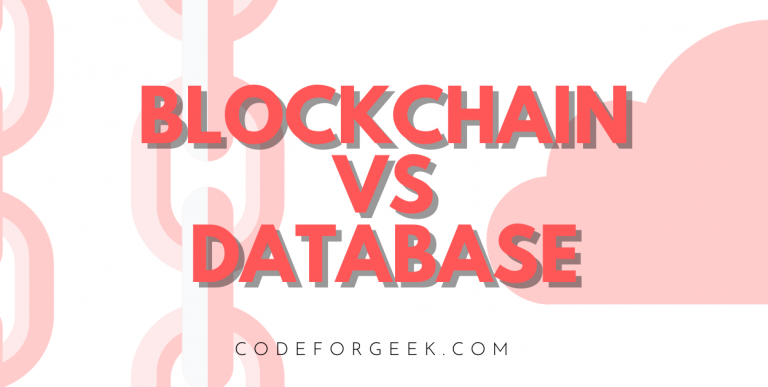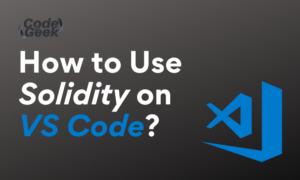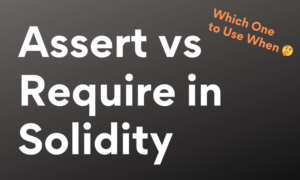You are probably reading this today because you are a newbie into blockchain technology and are wondering if blockchain vs databases is the same. Well, allow me to make it easy for you in this blockchain and database discussion.
Most people often describe blockchain as a data storage system (inside secure blocks) which gets some of us thinking it to be much like a database. They call it a “distributed database”. To be honest, when blockchain was all new to me, I too thought a blockchain and database are much similar.
Well, my questions were answered when I read a nice article on blockchain vs database somewhere, just like you are doing today. So, here I am all pumped to share my knowledge with you in this blockchain vs database guide to answer your questions.
In this article, I will give you a detailed walkthrough on blockchain vs database to give you a clear idea of what both are, and their comparisons.
So, let’s get started.
To get a better understanding of what they both are, we will start by learning the definitions of blockchain and database, individually. We will then take a look at a clear comparison of the two later in the blog.
What is Blockchain?
A blockchain network, as you might have known by now, is a distributed, shared, or decentralized ledger system. In this system, records of transactions are stored in cryptographically secured blocks across various nodes or computers scattered across the globe. These blocks also contain other data in them.
This data is stored such that no one can ever change or delete them. They live in their assigned blocks forever without anyone having the ability to tamper with them. The changes must be validated and verified by the nodes only then will they take place.
If at all someone tries to alter or tamper with the data stored in these blocks, these nodes may disagree and the changes will not take place. This way, the system offers transparency and integrity across the system even without the presence of any centralized authorities.
In this system, every previous block is linked to the next block. Thereby making it a linked chain of information scattered in blocks. A blockchain only allows users with the right key to “unleash” the data confined inside these blocks.
Blockchain ledgers are immutable meaning they cannot be changed by any means or deleted by anyone. Once recorded, the data lives in the block forever in its original form!
What is a Database?
Now that we know what a blockchain is, it is now time to learn a bit about databases. Databases, unlike blockchains, are centralized systems of data storage that are run by an administrator.
Databases also come with unique features like giving users the ability to read, write, update and delete data, which is unknown to blockchain networks. However, these users must have certain permissions to do so.
A database management system also allows you to store multiple copies of the same data and their history. This is possible when a trusted and centralized authority manages the database server.
Here, centralization is seen as a boon, most of the time. It makes it easy to manage databases and access and store data faster.
One big drawback of centralization is the chances of data corruption. However, with the help of backups, this also can be curbed.
Blockchain vs Database: A Quick Comparison
Now that we have a good idea about both blockchains and databases, let us now move on to the blockchain vs database comparisons.
Authority
Blockchain networks are developed to work in a decentralized way. On the other hand, databases stick to centralized systems.
Data Handling & Immutability
Databases allow data to be stored and retrieved easily and in a faster way. To ensure a smooth flow of operations across the application, the CRUD method of data handling is utilized. proper operation of the application.
The CRUD acronym stands for Create, Read, Update, and Delete. Meaning, this system allows data to be deleted and changed with new data if required.
In contrast, blockchain networks support immutability, meaning the data once stored in a block, cannot be ever changed or deleted by anyone. This eliminates tampering of data on the system.
Transparency
Databases are the disciples of centralization. Which is a bane because this disallows any form of transparency. It becomes difficult for users to verify the information if they had to.
Whereas, blockchain networks support transparency and uprightness in the system with help of their immutability feature. Anyone using the network is forced to adhere to this mechanism of the technology.
Read More: Blockchain vs Usual Ledger
Conclusion
You probably landed here because you are a newbie into blockchain technology and are wondering if blockchain and databases are the same. In this article, you will see a detailed walkthrough on blockchain vs database to give you a clear idea of what both are, and their comparisons.





